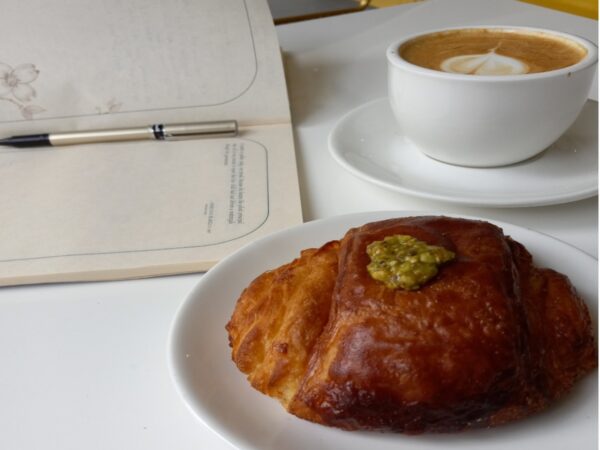by Esther Fishman
Esther Fishman has been a volunteer for Unconditional Freedom since 2021. As such, she continues to write letters to multiple pen pals in institutions all over the country.
I have always loved both writing and receiving letters. When I was a kid, I kept up an active correspondence with both my grandmothers. They lived far away, but I could feel their love just by opening the envelopes. In fifth grade, we picked penpals for a school project. Mine was in Norway! We stayed in touch all the way until high school.
Everything about the process of letter writing fascinated me. Shopping for stationary, picking the exact pen, watching the words flow across the page — it all seemed so grown up, so important. Unfortunately, once I actually did grow up, there seemed to be less and less time and energy to devote to such a slow method of communication. Except for my mother, who was always a dedicated correspondent, there has often been no one in my life who seemed to enjoy the process of exchanging letters as much as I did.
So, when I first found out about Unconditional Freedom’s letter writing program, I was thrilled. This will be a perfect way to get back into letter writing, I thought to myself. What better project could there be for me?
If I gave any thought to the people I would be writing to, it was about what I would be giving them. I had no doubt that I could brighten the life of my prospective incarcerated correspondents. Reading The Art of Soulmaking workbook, I recognized spiritual concepts that were familiar to me, and I looked forward to sharing my great insight and wisdom.
I was not prepared for the cumulative effect the teachings of The Art of Soulmaking would have on me. Meeting with my fellow volunteers, on Sunday via Zoom, and repeating the Soulmaker Principles out loud each week, I started to really understand what a radical approach these deceptively simple words embodied. “Unconditional freedom is freedom in all conditions.” How was I, who had only seen the freedom afforded a privileged white woman, supposed to communicate this amazing insight to someone incarcerated?
That question was soon answered by my first few penpals. I had no idea that those first letters would be so difficult for me to write, but they were. Burdened with this new insight into freedom, I struggled to express myself in a new way, without pretension and not giving way to my professorial predilections.
The letters I get back in return blew me away. They have been thoughtful, expressive, and show an insight into life that feels both wise and real. Often the personal situations described are harrowing, and many of my correspondents have expressed the surprising insight that if they had not been incarcerated, their lives would probably have spun out of control. Some have even said that they were thankful for the chance to think about their futures, and that prison had given them the chance to turn their lives around. One even quoted Shakespeare and the Koran, which he knew by heart.
I thought deeply about each letter as I received them. Which of us would be grateful to be incarcerated, even if only for a weekend retreat? Are we, on the outside, free enough to see the prison bars of our own making? Unconditional freedom is freedom in all conditions.

 Get access to the monthly Rehumanization Magazine featuring contributors from the front lines of this effort—those living on Death Row, residents of the largest women’s prison in the world, renowned ecologists, the food insecure, and veteran correctional officers alike.
Get access to the monthly Rehumanization Magazine featuring contributors from the front lines of this effort—those living on Death Row, residents of the largest women’s prison in the world, renowned ecologists, the food insecure, and veteran correctional officers alike.